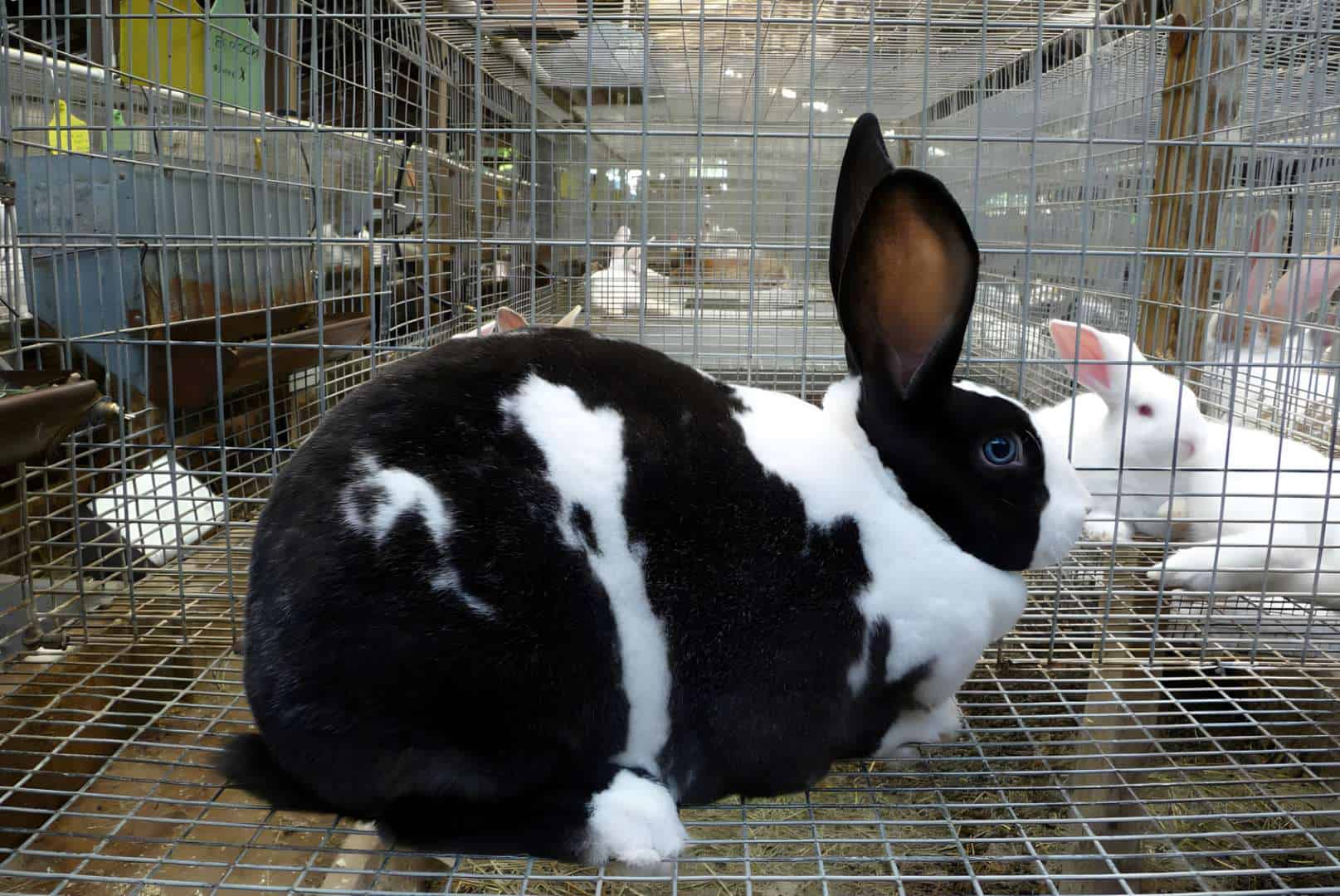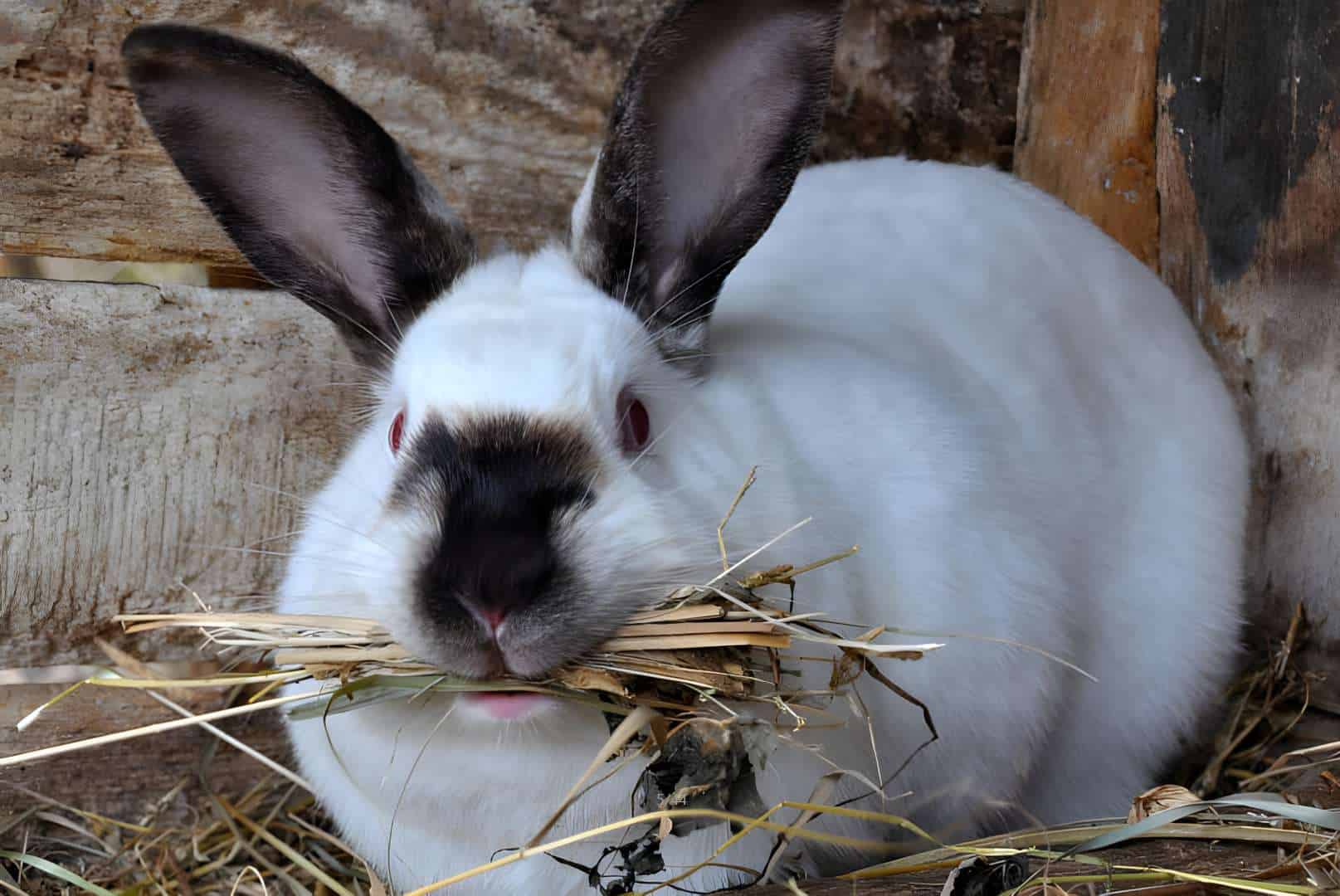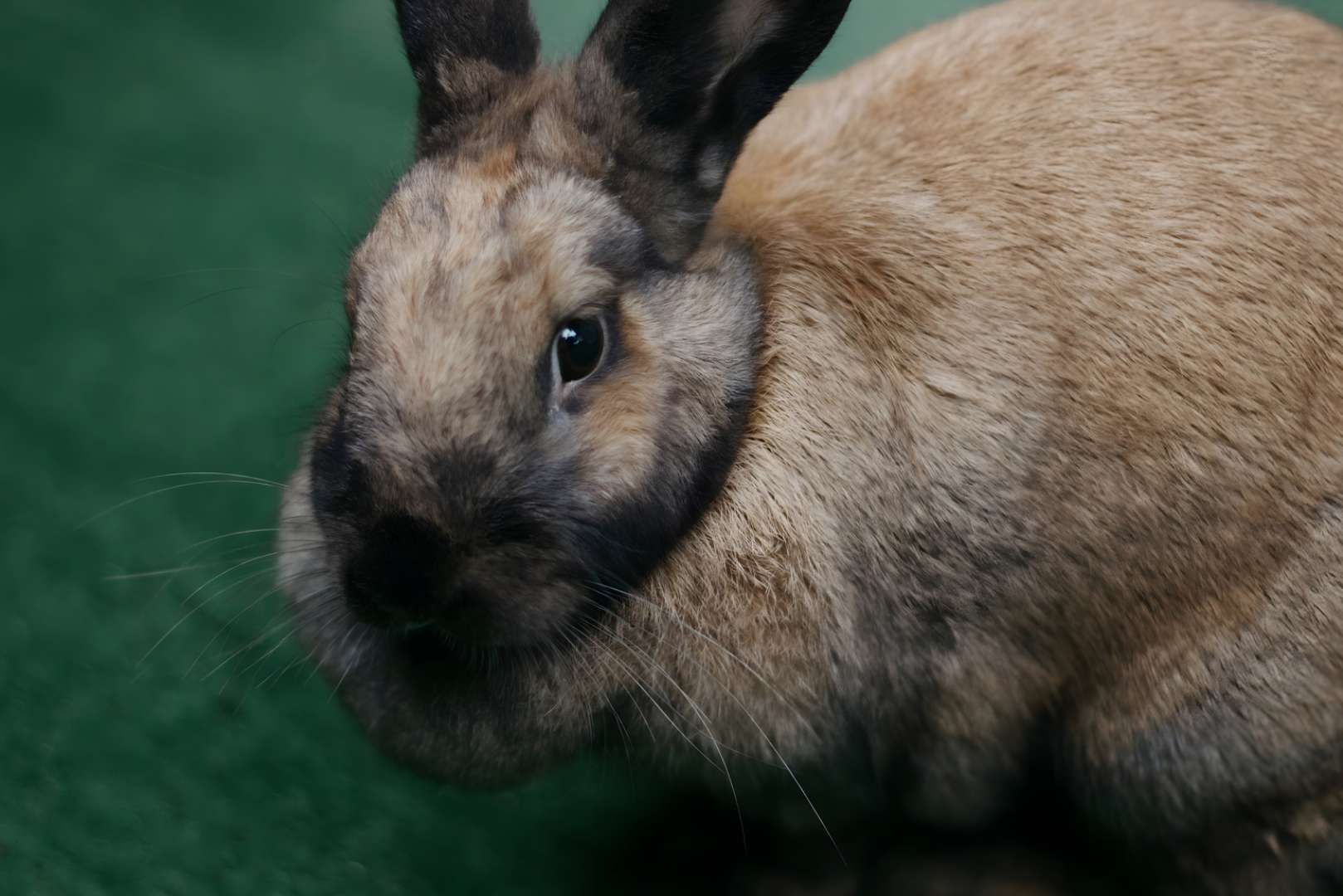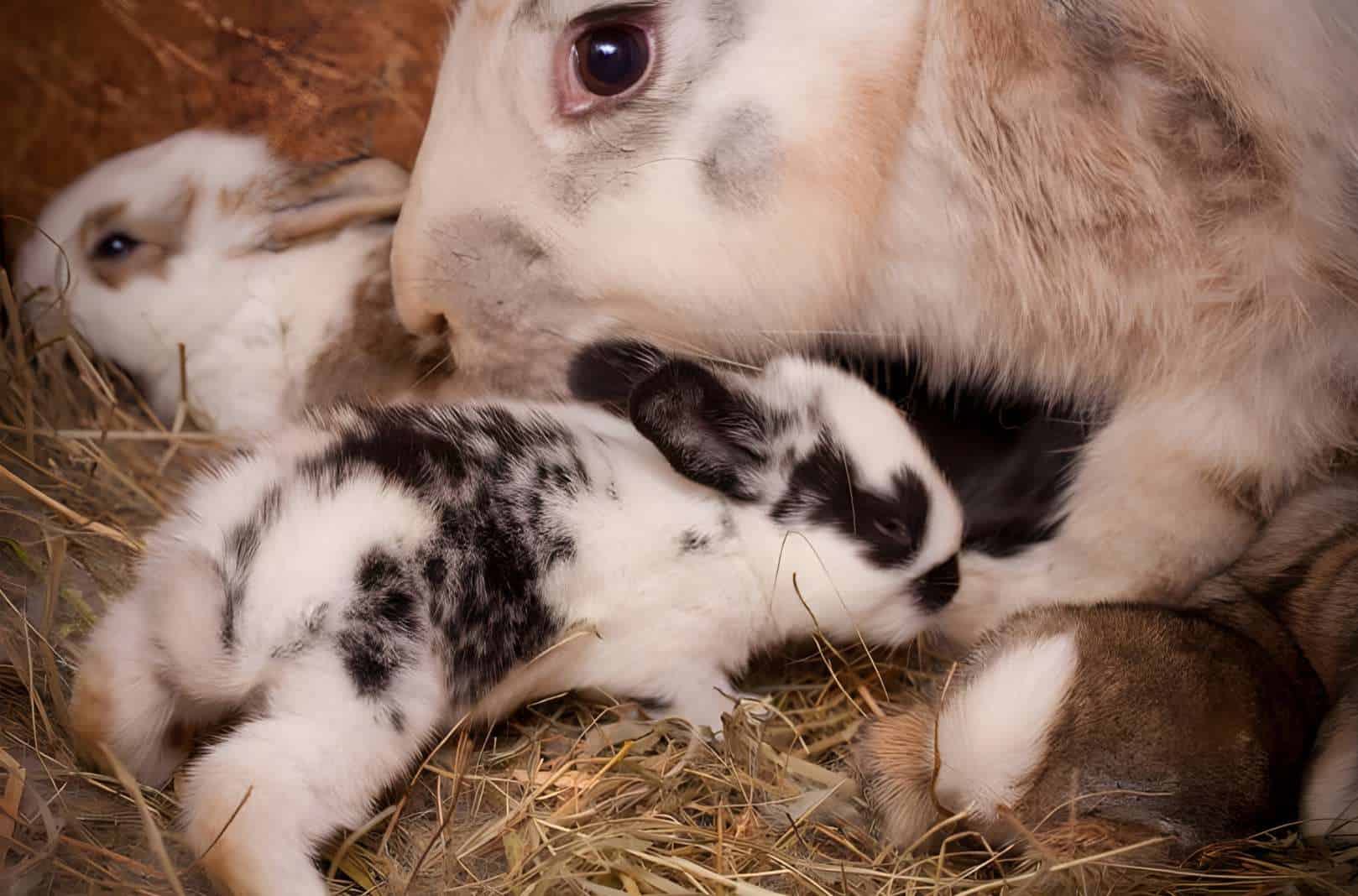Did you know that a rabbit can technically get pregnant 24 times a year? That’s a surprising fact! With the frequency of having several litters each year, pet owners should put a Rabbits Pregnant Guide to heart. Knowing how to care for rabbits during pregnancy is a step to keep her litter safe and healthy.
Here’s the ultimate Rabbits Pregnant Guide with everything you need to know before your rabbit kindling!
Pregnancy signs
Most often, the signs that your rabbit is pregnant are not very noticeable. The symptoms may be so subtle that they only become evident until it’s only two days before she gives birth.
But like any other mammal, there are pregnancy signs you may watch out for. Listed below are the factors you should observe:
1. Weight gain
This sign may be the most obvious clue that your rabbit is pregnant. Pregnant rabbits eat more throughout pregnancy, significantly contributing to their body weight.
2. Unfriendly behavior
While it can be hard to tell, an unfriendly cranky behavior is a sign that your rabbit is pregnant. You might start to notice mood swings during the early stages of pregnancy.
Your rabbit may not feel like playing, running, or doing tricks. Pregnant rabbits may not be happy about being touched and carried too.
3. Growing belly
Besides weight gain, one of the apparent clues is a growing belly. As your rabbit eats more and gains weight, its stomach starts to grow bigger and bigger.
4. Belly bumps
Inside a pregnant rabbit’s growing belly are baby bunnies that resemble marbles or grapes when palpated. To detect the small bumps, use your fingers to feel around the rabbit’s abdomen.
As you palpate and move your fingers, you may feel grape-sized bumps or marble-like lumps on her stomach. These are baby bunnies called kittens that will continue to grow inside the rabbit for weeks, resembling more giant bubbles.
They further develop until the mother rabbit, or doe, is ready to give birth.
5. Little kicks
As the kittens grow bigger, they start to be active and tend to move a lot inside the mother rabbit’s belly. You may feel little foot kicks as you palpate the doe’s abdomen.
6. Nesting habits
As your rabbit’s pregnancy progresses, she will start nesting. You may notice your rabbit constantly digging around and sometimes pulling her fur. A pregnant rabbit has nesting behaviors to protect her kittens and give them a secure and comfortable home once she gives birth.
Pregnancy Care
Rabbits need tender loving care. Your rabbit needs you during her pregnancy. So, it’s important to give all the support you can give! After all, the journey may not be easy. But you know it’s worth it, right?
Here are rabbit pregnancy care tips you can do:
1. Ensure a comfortable space for your rabbit.
Because of the changes a pregnant rabbit encounters during pregnancy, she will need more support and care from you. Providing her with a safe and comfortable living space benefits your rabbit and her offspring.
Enough space does not necessarily mean a huge rabbit house. You can opt to build a nest box by yourself or invest in a good-quality commercial rabbit cage.
Consider the following when preparing her room:
- A crate of adequate dimensions, such as a 25 x 15 in crate or cage
- A private and quiet, comfortable living space away from distractions and noisy appliances
- An area with a few bright light sources
- Enough hay to fill your rabbit’s nest box or crate
On top of everything, make sure to clean the area regularly. To remove heavy stains, mix water and a block of non-toxic soap.
2. Keep your rabbit away from harm.
One of the most important things when caring for a pregnant rabbit is to keep her safe. Her shelter must be away from other animals and house pets.
Do not let your pregnant rabbit stay close to her mate. If the two remain separate, it would prevent the male rabbit from attacking her or possibly mounting her again.
Other than house pets and your rabbit’s mate, avoid carrying or touching your pregnant rabbit. They can get cranky as they enter a sensitive stage in their pregnancy.
Pregnancy Diet and Feeding
Mother bunnies need to have good nutrition to support their kittens. They need to be fed healthy food since babies are growing in their bellies. Planning a healthy diet for pregnant rabbits is optimal for their babies’ growth and development.
However, it is important to know that immediate changes in a rabbit’s diet are not recommended. It may upset their stomach and lead to digestive problems. This can affect their behavior and contribute to a pregnant rabbit’s mood swings.
The best thing to do about this is to increase your pregnant rabbit’s diet slowly. Give them lots of hay and pellets constantly every day. Gradually increase the serving between days 14 and 21 of your rabbit’s pregnancy.
Green vegetables are also an excellent addition to your rabbit’s diet. And of course, the most important is for them to have a constant supply of clean and fresh water daily. Water, hay, and pellet should be available for consumption 24/7.
Like whole oats and black oil sunflower seeds, food supplements are also beneficial. Sunflower seeds help in lactation and milk production as they are a good source of extra fats.
There are not many foods to avoid during your rabbit’s pregnancy, but it would be best not to give her sweet fruits. Sweet fruits may upset your rabbit’s digestive system.
Pregnancy labor signs
How to know if your rabbit is in labor? Here are the three telltale signs to help you prepare for your most-awaited day!
1. Loss of Appetite
Does lose appetite approximately 24 to 48 hours before delivery. You may start to notice that your rabbit stays away from food and isolates herself during this time.
2. Changes in Mood and Habits
As your rabbit goes deeper into labor, she would appear tensed and uneasy. Another thing to observe is her nesting behavior. Your rabbit will dig burrows to make a nest for her kits.
A pregnant rabbit in labor will also pull her fur to line the nest. Patches of missing hair are typical pregnancy signs. Your rabbit’s fur should grow back to normal after her pregnancy.
3. Blood
Don’t worry, it’s normal! Rabbits may bleed during labor. Just make sure to clean her crate after delivery.
Caring for Newborn Kits
Congratulations on reaching this milestone! Now that your rabbit has given birth, you might be curious about how to care for her babies. Caring for kits is a rewarding experience. Hence, as a pet owner, you should learn how to do it properly. Here is an easy guide on how to take care of baby rabbits:
1. Set up a sanitary and secure nesting box.
Baby bunnies will spend most of their time inside their nesting box. Typically, they would be inside for around two weeks. You have to ensure that they are in a clean and safe nesting box.
Below are the criteria you may consider when building the nesting box:
- Size: An ideal nesting box is approximately 9 x 15 inches, with a height of 5 inches. Make sure that the nest gives enough room to fit all rabbits to move freely.
- Lining: Line the nesting box with newspaper or hay. You can also use paper pulp beddings.
- Rabbit Fur: Their mother will line the nesting box with fur. This nesting behavior keeps the babies warm.
2. Handle baby bunnies with care.
Have you ever heard of the myth that you are never allowed to touch baby rabbits? To clarify, this is untrue. It’s generally safe to touch baby rabbits as they are comfortable around humans.
However, always handle baby bunnies with care! Kits are very delicate. Remind every individual in the household, especially children, to be careful when touching or carrying these tiny furballs.
3. Ensure adequate feeding.
The primary source of nutrients for baby rabbits is their mother’s milk. For the first two weeks of their life, they need to be fed at least twice every day.
Do rabbits get pregnant every time they mate?
Female rabbits, as young as 5 to 6 months of age, female rabbits can get pregnant every time they mate with male rabbits. In fact, a healthy dose rabbits mating receptiveness for 14 days of every 16 days!
How long are rabbits pregnant?
Rabbits’ gestation periods differ according to breed. On average, rabbits, like the Netherland Dwarfs and Lionheads, are pregnant for 31 to 33 days.
Breed | Length of Pregnancy |
European Rabbit | 29 to 35 days |
Eastern Cottontail | 27 days |
Swamp Rabbit | Swamp Rabbit |
Desert Cottontail | 28 days |
Common tapeti | 42 to 45 days |
New England Cottontail | 28 days |
Dice’s cottontail | 30 days |
Mexican Cottontail | 30 days |
Summary
As a pet owner, it is your responsibility to learn every bit of this rewarding experience. Thankfully, a Rabbits Pregnant Guide is here to be your best friend on this journey. You now know how to care for your pregnant rabbit down to her kits properly. Send your well wishes from us to your doe!



